Muck Digestion Products: Take competitors’ claims with a grain of salt
The results are in, are all muck digesters the same?
By

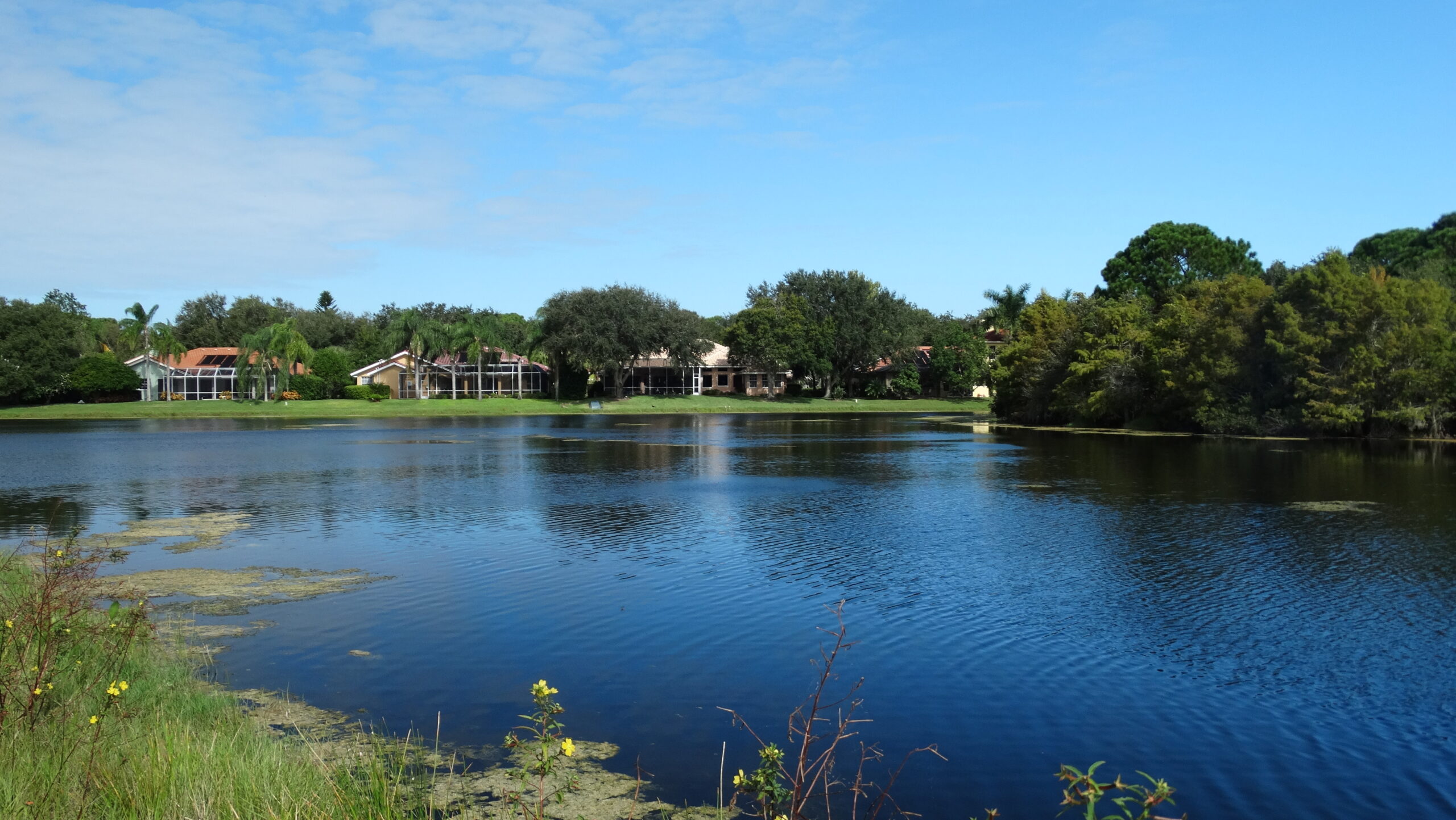
At Natural Lake Biosciences, we believe in real science that produces real results. That’s why our MuckBiotics has earned the spot as the #1 muck (sludge, organic matter, etc.) digestion product used by lake and pond management professionals. So why do all of the pros prefer Natural Lake Biosciences’ MuckBiotics? Is it just because Natural Lake Biosciences is the only company with real independent case studies? Is it just because Natural Lake Biosciences is the only company with a laboratory full of industry-leading scientists constantly researching and improving product performance? Maybe it is because Natural Lake Biosciences provides unparalleled education and customer service. Or could the answer be much simpler?
To get to the answer, Natural Lake Biosciences decided to put MuckBiotics up against the three leading “biological” products for muck digestion found online using two independent laboratories and two simple tests:
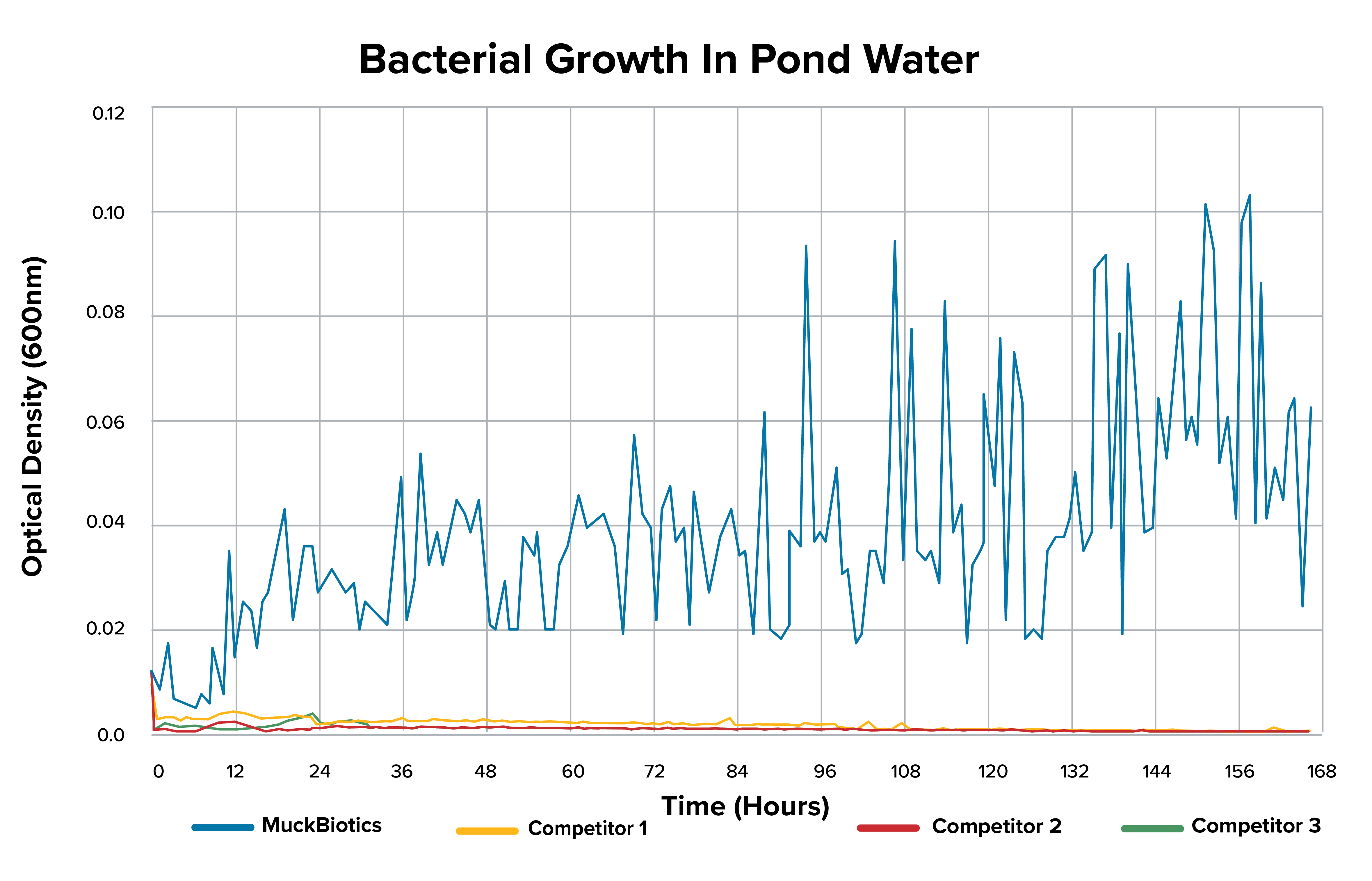
Figure 1. Optical densities (600 nm) of four bacterial products in filtered pond water over a 7-day period at a treatment of 500 µg/ml. The plotted values are the average of triplicate wells. Error bars indicate the standard error of measurement.
To start, bacterial growth testing was performed by an independent laboratory to determine if spikes in bacteria biomass would occur in pond water, indicating product efficacy (Figure 1). This was measured by recording the optical densities over a seven-day period. Higher optical densities indicate more bacterial biomass. The results…were astounding. Of the three leading muck digestion products found online, ZERO produced any additional bacterial biomass in the pond water sample. MuckBiotics, on the other hand, thrived in this test. Figure 1 clearly shows that MuckBiotics produces additional bacterial biomass over the entire seven days when added to a pond water sample.
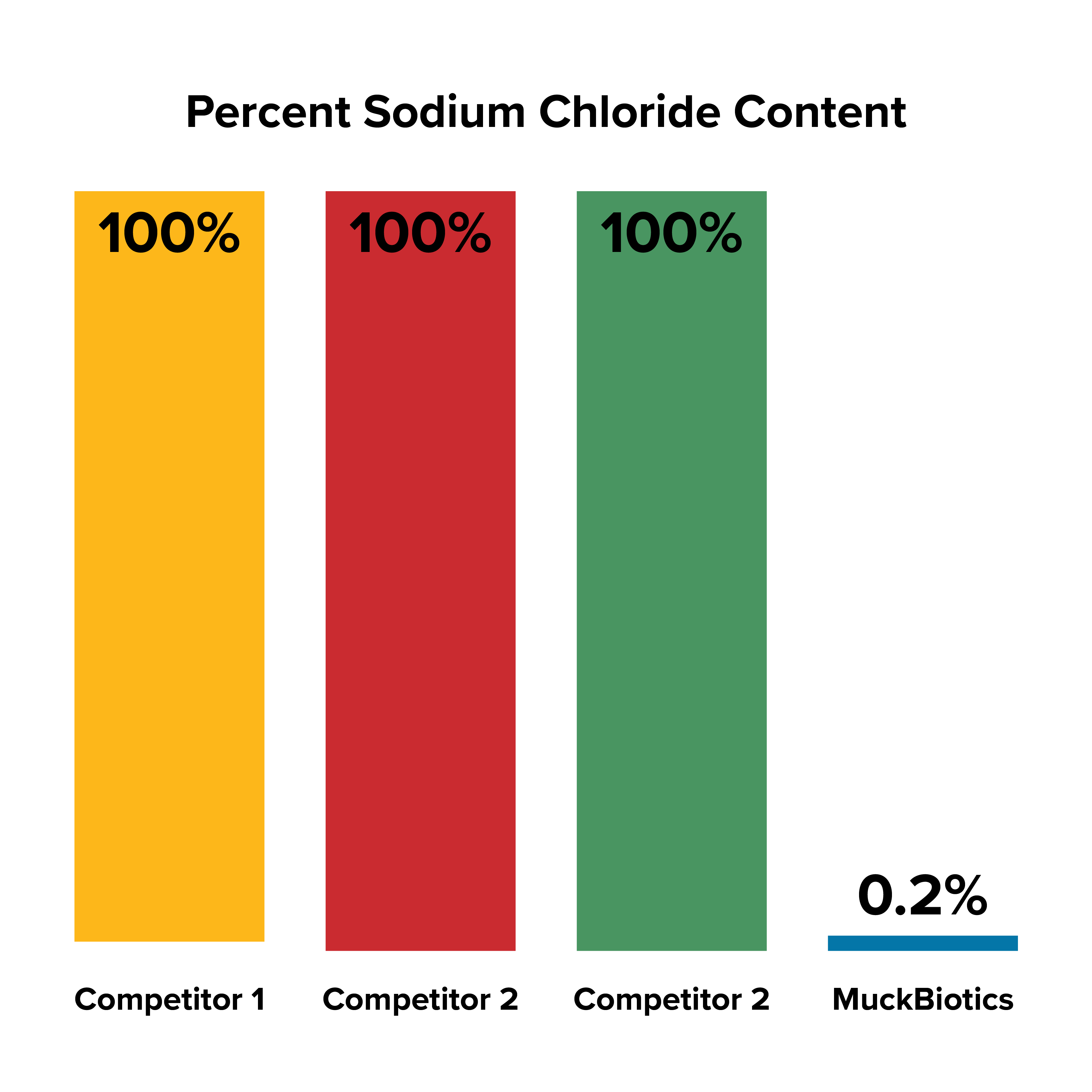
Figure 2. Percent sodium chloride testing of four commercially sold muck digesting products.
It is common (especially in water gardens or decorative pond products) for manufacturers to incorporate sodium chloride (salt) into their sludge reduction tablets/pellets because it is cheap and easy to mold. Unfortunately, too much sodium chloride in a product can have a negative impact and limit the bacterial growth rates for added and native bacteria. Because of the results from the bacterial growth testing (Figure 1), it was determined that the products should be analyzed for sodium chloride content.
An independent lab tested the salt content of the three leading muck digestion products found online against MuckBiotics (the #1 preferred muck digestion product by lake and pond management professionals). The results were not surprising. The same three that showed zero growth in the previous test were identified as containing 100% sodium chloride. If these products are added to a water body at label rates each year, the lakes would eventually become brackish (>1,200 µS/cm conductivity). MuckBiotics, however, only contain 0.2% (Figure 2).
Putting these two tests together, it is obvious why Natural Lake Biosciences’ MuckBiotics is the #1 preferred muck digestion product by lake and pond management professionals. Natural Lake Biosciences is dedicated to creating safer water and better lives through pioneering biosciences. At our University of Wisconsin Research Park laboratory, our scientists develop all-natural biological technologies for lake and pond management professionals. Natural Lake Biosciences is the world’s leading manufacturer, supplier, innovator, and educator of biological products for aquatic professionals. Our probiotic and biocatalyst products make treatments easier, safer, and more effective.
When considering what products to put in your water body…always remember to keep it a Natural Lake.
Tip of the day:
The threshold between freshwater and brackish water is a conductivity of 1,200 µS/cm.
Related Products
MuckBiotics
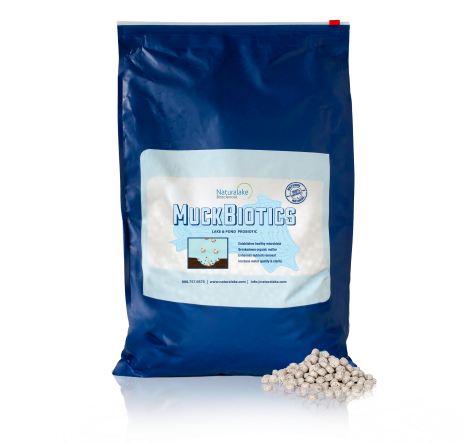
Summer Slam
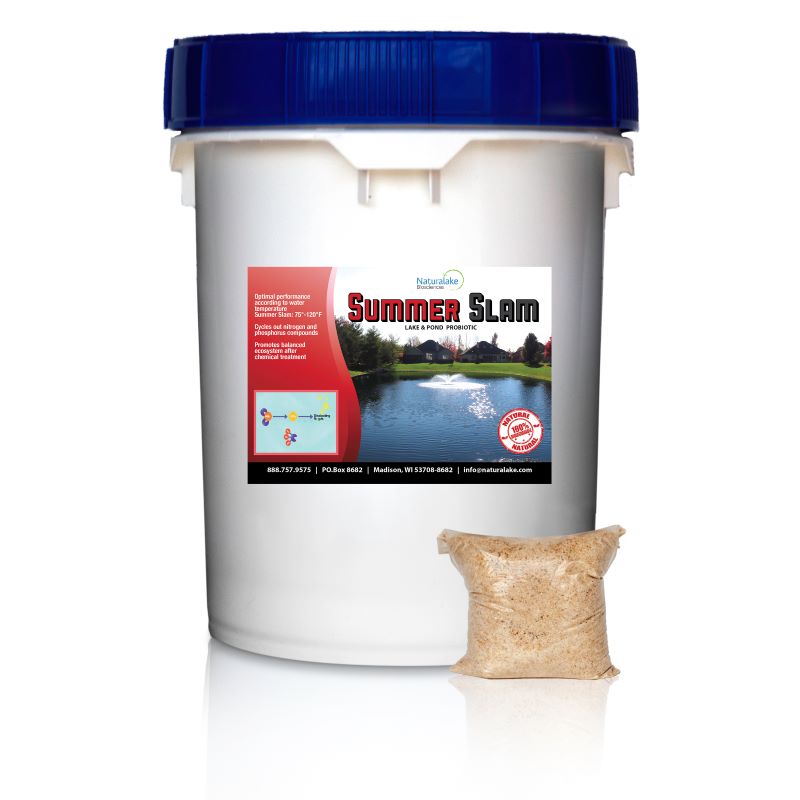
Nature’s Blend
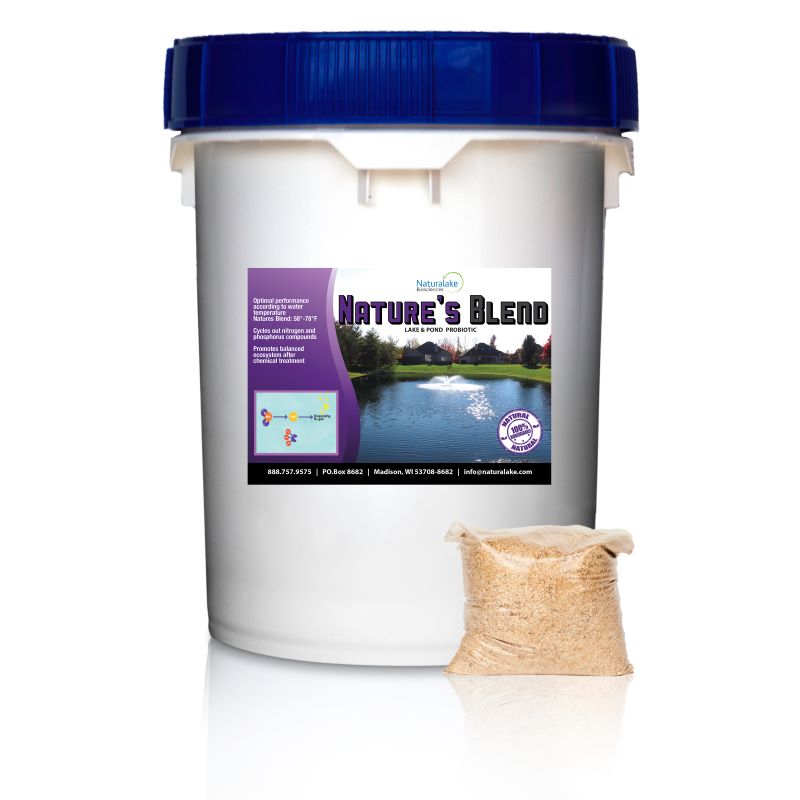

About the Author
Landon earned a Bachelor of Science degree from the University of Wisconsin – Madison. He joined the Aquafix team in 2011 and currently leads the Natural Lake Biosciences division. Landon serves on the Board of Directors for the Midwest Aquatic Plant Management Society and is a contributing member of many professional aquatic organizations. He is passionate about using his industry experience and expertise to promote sustainable and effective biological technologies for managing aquatic resources.
Stay Up to Date With The Latest News & Updates
Subscribe Below for Natural Lake Biosciences Updates and Event Invitations!

0 Comments